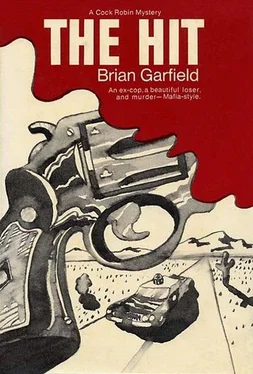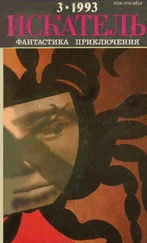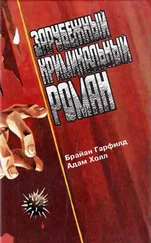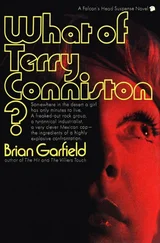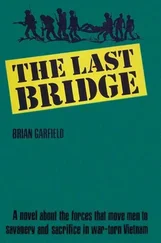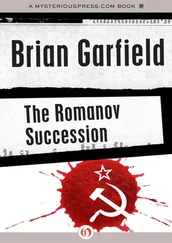I put the gun on the bed beside her. “If that was what I had in mind,” I said with a little grin, “I wouldn’t get within a mile of him with a gun.”
She didn’t smile. “You’re a sweet, generous son of a bitch, Simon. I wish—”
Whatever she had meant to say, she didn’t finish it. I tried to dismiss it with an airy gesture and a casual voice: “The one born every minute, I’m him.” I bent down and gave her a quick brushing kiss, without force; she didn’t draw back, and I straightened quickly and went to the door. “Stay put until I call you. They’ve got a lunch counter in the lobby — room service might be better. Watch TV and don’t think about things, all right?”
“Sure,” she muttered. “Sure. I’ll be all right. Simon... be careful.” She sounded miserable.
I made a face and went. Got in the Jeep and pointed it out of the lot. As I stopped at the stop sign, I heard a car rushing forward from the left and turned in time to see a green sedan speed by — glimpse of a thick, red-nosed man, squinting and hard-jawed behind the wheel — then it was gone beyond the freeway overpass, the wind rush and dopplering-down engine roar fading. Nobody I knew. I chastised myself with profanity for being a jumpy fool and chugged onto the road, headed for the foothills east of the city.
As the Jeep surged along the eastbound boulevards I reviewed what I knew about Vincent Madonna.
Madonna, at fifty-five or thereabouts, had arrived in the States at the age of six or seven, grown up in East Harlem and the Bronx and graduated from hoodlum to crook to gangster. At various times he had been named publicly by the FBI and other agencies as a wartime gasoline ration-coupon racketeer (arrested in 1944; released when witnesses failed to turn up), as a labor union and slot machine boss, and — in the early fifties — as the top enforcer of the Mosto Family, which went west to Las Vegas in 1949 and moved into the Southwest. When Don Frank Mosto had died of natural causes a few years ago, the resulting gangland earthquake had settled with Madonna firmly established; even since then, he had stood on his empire like a crowing cock on a dunghill. He was big and powerful and had tried to polish himself with a surface of respectability, but he hadn’t succeeded; Madonna had come a long way up from the gutter but he never managed to wash off the smell. He lived in a world inhabited by dinosaurs and circumscribed by the law of omerta — the Cosa Nostra code of silence. He paid a New York outfit $20,000 a year to keep his name out of the papers; he put a price on everything, and a value on nothing. A nice cozy chap to deal with. I had never met him, but there wasn’t a cop south of Boise who didn’t know him by sight.
The foothill suburban ghetto which Madonna inhabited was singularly free of crime — a fact that had puzzled me when I was a cop, because it was the kind of rich folks’ neighborhood that normally makes fine pickings for cat thieves and night-crawling burglars. I soon learned the warnings had gone out: independent crooks were to stay out of the area and avoid giving it a bad name. Any lone wolf crook who ignored the warnings was likely to disappear permanently. Madonna didn’t want to give the cops any excuse to prowl the neighborhood, because he didn’t have all the cops in his pocket. It would have been not only expensive but impossible: there were certain cops he couldn’t get to. Not all cops were actively corrupt, although virtually all of them were passively corrupt: they couldn’t help knowing their buddies were on the take, but they did nothing about it. Corruption was not open, it was never admitted; a bribed cop stood on tenuous footing, and wasn’t likely to confess his corruption, not even to another cop he was sure was equally guilty. And no honest cop could feel safe in blowing the whistle; he couldn’t be sure of the superior officer to whom he had to blow the whistle. The power of graft-producing organizations like Madonna’s lay in that twilight dubiousness: no official could trust a fellow official enough to spell out what he knew.
Vincent Madonna’s command fortress was a sprawling foothill mansion perched on a cactus-studded knell with a view of the entire city. It was an architectural bastard — part Spanish adobe-mission, part Texas ranch style, part Sunday Times house-beautiful feature page. All on one story, it had several wings and outbuildings, spidering out with the shambling graceless opulence of a Las Vegas motel. There were sprinklers on the lawn, ticking loudly, and four or five cars cooling their wheels in the circular gravel drive, including Madonna’s 1941 Lincoln Continental, a painstakingly restored classic. Everybody’s got to have a hobby. The smell of the watered grass was a warm spice that registered keenly in my nostrils when I parked the Jeep behind the Continental and stepped out.
I had taken for granted that the place would be festooned with alarm systems and bodyguards; the latter assumption proved accurate enough — the door swung open before I got to it and a rum-looking Neanderthal gave me a sizing up which I associated in my mind with the look a hungry piranha would direct toward a raw hunk of bleeding flesh. He wore a sport jacket which he had obviously only put on in order to open the door so that his shoulder-holstered gun wouldn’t show.
“Yeah?”
“I’d like to see the Don. I’m not armed.”
“What name?”
“Simon Crane.”
“Mr. Madonna expecting you?”
“It’ll come as no surprise,” I declared.
The bodyguard looked uncertain; then, abruptly, he turned to look over his shoulder at someone who had come up behind him. It was hard to see inside against the blinding light of the exterior sun, but then I heard that wheeze of a voice and recognized it immediately: an old injury to the larynx had reduced Pete DeAngelo’s voice to a harsh whisper.
“Who’s all this?”
The bodyguard took a step backward to explain to DeAngelo who I was and what I wanted, but DeAngelo brushed him aside and came forward. His tall frame filled the opening. “Hello, Crane.”
DeAngelo was a sleek, cold man, hard and handsome and poison-cruel. He was a dandy: he was wearing white tapered slacks, white loafers with pointed toes, an ascot under a high custom shirt collar. His polished nails glinted. If MGM ever decided to make the Pete DeAngelo Story , the role might have gone to Robert Wagner. He had a deep suntan and opaque eyes; he revealed all the feelings of a marble slab.
I gave him plenty of time to look me over. We had met before a few times — twice at the station house when he’d come to bail out a couple of the boys. Among his other accomplishments DeAngelo was a bar-admitted lawyer. He was also Madonna’s consigliori — councilor and right-hand man. His reputation was for ambition, brains and smooth if ruthless efficiency.
I said, “I’d like a minute with the Don.”
“What for?”
“To save me trouble and save you people time and effort wasted on wild goose chases,” I said, watching his face. If there was any reaction inside him, he made no sign of it.
He glanced back at the bodyguard, who was tugging at his cuffs and scowling. The bodyguard had a disturbing way of leaning so far forward his feet seemed nailed to the door. Buster Keaton used to do that, I thought. DeAngelo said in his grating whisper, “Keep him company, Freddie,” and went back into the house without another glance at me. DeAngelo’s shoes had heels that clicked like dice.
Freddie propped himself in the doorway with his arms folded, keeping me out under the sun. I said, “You’re from Chicago.”
He shook his head and grinned. He looked like the type who was chronically on the lam. I said, “Hot, isn’t it?”
Читать дальше
